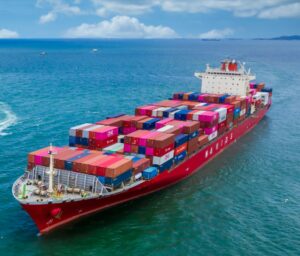The complexities inherent in the global trade business can be difficult to overcome. The competitive nature of trade in general demands that companies take the initiative in preparing themselves to remain compliant with Customs and other agencies. If your business needs a global trade compliance consultant, look no further than Braumiller Consulting Group, LLC.

CBP will issue binding rulings to importers on various import- related issues, including HTS classification, customs valuation, country-of-origin and marking determinations, and entry requirements.
We have decades of experience in the research and preparation of ruling requests.
Determining when export licenses and exceptions are required can be technical and detailed work.
Failure to obtain an export license or utilize an appropriate exception may result in monetary penalties and denial of export privileges.
We have the expertise to help you navigate the export licence process.
Managing your free trade agreement solicitations and qualifications can be a time-consuming task. We can take that work off your plate by running your FTA solicitations, contact- ing vendors and suppliers, following up with them to ensure they respond, and vetting their information for accuracy and completeness.
We can also review and qualify products for any free trade agreement for import, export, or sale domestically. If goods do not qualify, we can offer expert advice and guidance on how to modify sourcing or manufacturing so that the goods can properly qualify for the free trade agreement. On an ongoing basis, our team can manage this process from year to year and throughout the year when process and sourcing changes dictate.
The effectiveness of any policy, procedure or process must never be taken for granted.
Are they being followed? If so, what makes them effective? If they aren’t followed, why not? There’s always room for improvement in even the most effective documents. What are the gaps, redundancies, ambiguities, or other issues that can be addressed? We can look at your documents with the critical eye of an outsider and suggest changes, improvements, and different strategies.
Incoterms are ubiquitous but often misunderstood. They define the point in a transaction where the financial, compliance and logistical responsibilities transfer from a seller to a buyer, as well as a risk transfer.
We can help you understand the implications of using or agreeing to an Incoterm that is not optimal for your transactions.
Are you new to the Mexican market or maybe you need legal help with your established business there?
Our Mexican Trade Law practice can be your one stop shop for legal guidance and help with regulations, IMMEX, and all types of customs business.
We are your “boots on the ground” in Mexico. (Via assistance from Braumiller Law Group)
Many federal agencies have special rules that must be followed for specific products or circumstances.
For example, the FDA and USDA have rules that regulate the importation of food, and the EPA and the Dept. of Transportation regulate the importation of automobiles.
We can help you navigate the regulatory maze of these partner government agencies (PGAs).
Are your trade processes efficient, compliant, and proactive? Our team can review your current processes critically, analyze them thoughtfully, and then provide our recommendations to improve them and close any gaps. We can support the development, drafting, and implementation of policies, procedures, work instructions, terms-and-conditions, and other compliance-related documentation, as well as appropriate monitoring to ensure that any changes you make are communicated and implemented.
Do you need help setting up your CTPAT programs or are you struggling to complete your annual reviews to remain certified?
Let our experts work with you and your supply chain partners to make sure all of the criteria are met and your responses to CBP are filed correctly and timely to certify, or remain certified, as a trusted trader in CTPAT.
CBP has a reconciliation entry program for flagging entries that require post-entry correction, but not every correction is eligible for reconciliation.
We can review your business and guide you on whether the reconciliation entry process would be appropriate for your business.
Tariff engineering is the proactive structuring of your products and processes so that the duty your company pays is less than it otherwise would be.
We have the expertise to explore your company’s potential tariff engineering opportunities.